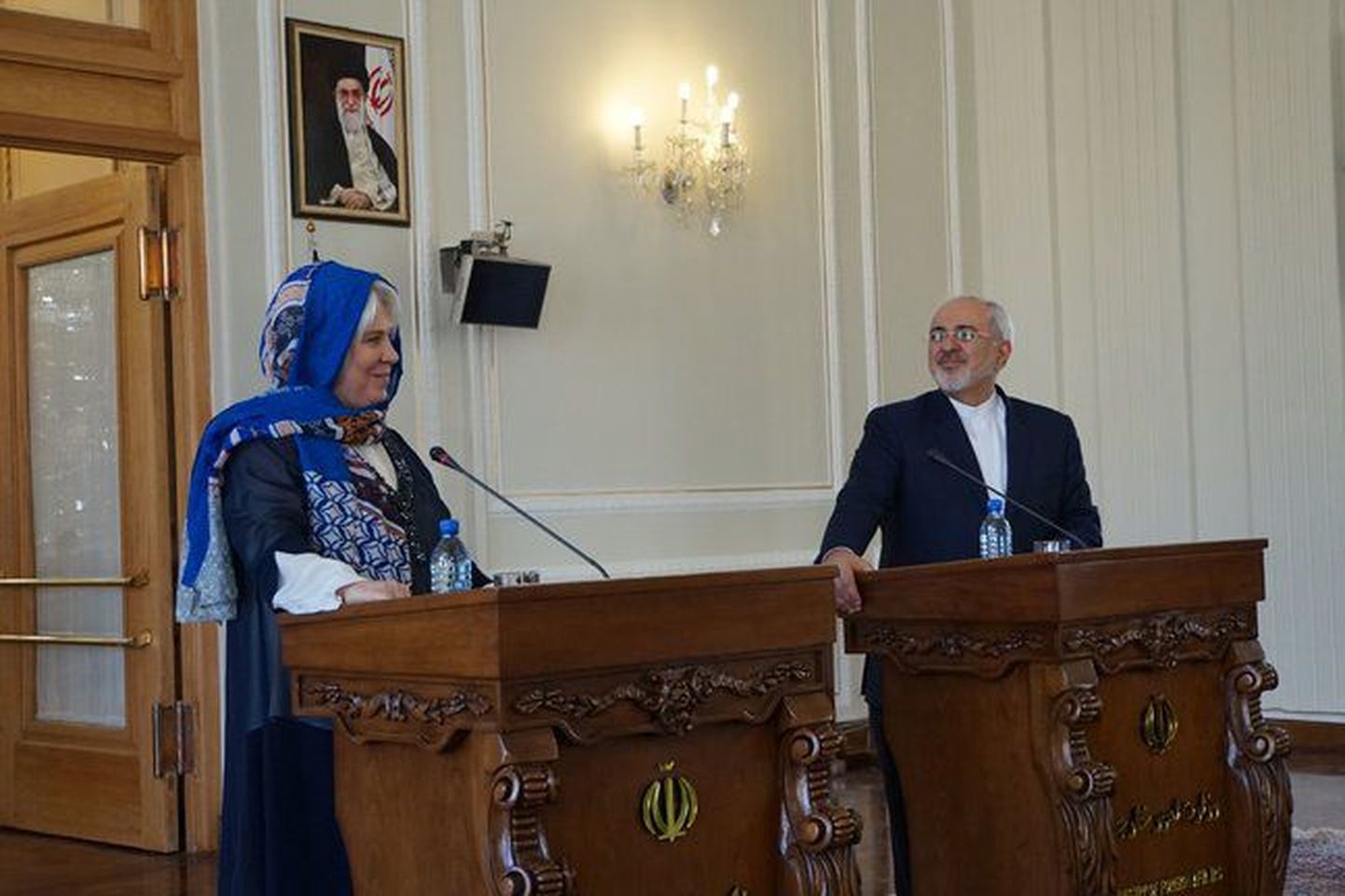
The first ever Estonian politician to officially visit Iran, foreign minister Marina Kaljurand was soon to experience a plague of the exhaust-smoky Tehran streets called traffic jam.

The first ever Estonian politician to officially visit Iran, foreign minister Marina Kaljurand was soon to experience a plague of the exhaust-smoky Tehran streets called traffic jam.
Even so, over time this sight of a black hybrid Mercedes standing amid local cheap and battered Chinese vehicles may be as much as an exception as is such a fancy car in town right now.
Iran is opening up for the world, delegations from various nations are arriving with regularity, large airlines are opening connections and enterprises of all kinds are seeking a foothold.
No wonder the interest as last summer the nuclear accords secured the removal of sanctions and the country of 80 million of educated population, 18th economy in the world by size, is attractive enough.
The more so that, after years of having to do with lower quality stuff, the Iranian market poses a strong potential. As The Economist put it at the beginning of the year: some Western diplomats and financial figures residing in Tehran are convinced that win ten years Iran will speed past the regional giants Saudi Arabia and Turkey by GDP.
For the ordinary Estonian ear, it might seem strange for Iran to have taken an interest towards Estonia, but foreign minister Ms Kaljurand assures us this is so at the moment. Not just because Estonia is in EU, but «Iran is interested in cooperation. This is a country with a market cut off from trade for a long time. Sufficient to glance at the city streets to say they would definitely like some better and more expensive cars. This here is a market desperate for goods,» as Ms Kaljurand told Estonian media yesterday following a meeting with Iranian President Hassan Rouhani and foreign minister Javad Zarif.
While never missing Estonian candy or cheese nor likely to ever want them, as also admitted by Ms Kaljurand, the Iranians are primarily interested in information technology, communications and e-services. «Not going to fill Iranian market with the usual Estonian goods,» she added.
In addition to above, topics discussed at the meetings featured regional issues like peace talks in Syria, the situation in Yemen, and the Middle-Eastern peace process. As conceded by the minister, Iranian opinions are interesting while they cannot be claimed to coincide with those of Estonia in everything.
The discussions also touched upon Ukraine. «Unavoidably, Iran is influenced by their excellent and close relations with Russia,» commented Ms Kaljurand.
According to the Estonian foreign minister, her Iranian colleague asked if Syrian and Ukrainian subjects could be combined – so that Russia is offered something in Ukraine for cooperation in Syria. Ms Kaljurand said she explained the position of Estonia and the EU and assured the colleague these were separate subjects.
«There is Syria and the solutions to be found there, and there is Ukraine and the solutions to be found there. These will not be combined, and nothing will be offered by one in exchange for the other,» said Ms Kaljurand.
Iranian foreign minister Mr Zarif told Postimees and ERR their current priorities, next to achieving regional peace, is the keeping by all parties of the nuclear treaty. «We have kept our part of the nuclear treaty thus we expect USA to encourage business activity in reality and not on paper only, and urge enterprises to come here,» said Mr Zarif and admitted that foreign entrepreneurs continue to feel an emotional barrier towards Iran.
Though the economic situation will probably be improving in Iran, this will not spell solutions to problems in the society. Even so, Ms Kaljurand underlined that the nuclear accord allows other nations to talk to Iran about subjects not necessarily comfortable for Tehran – like human rights.
Till today, the Islamic republic features death penalty, and the morality police basij may lash their whips at women without headscarves, and ayatollah Ali Khamenei sits as supreme leader.
Freedom of speech is restricted, anyone making a statement against the authorities risk jail, Facebook and Twitter, as well as the Postimees portal, are closed down – though there are naturally ways to bypass that.
According to people familiar with the Iranian society, the middle class for instance no longer thinks that anti-government protests make sense as the only result is potential prison terms.
Of course they curse the state but between four walls only, and among people they trust – not on slogans. The only obvious path towards greater freedoms would be to wait until the bunch in power inevitably ceases to be among us.